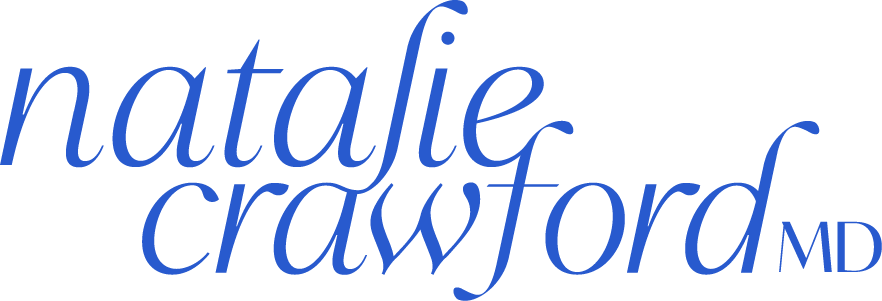Understanding Ovarian Failure, Perimenopause, and Your Hormones
As a women's health and fertility specialist, I'm passionate about empowering women to understand their bodies, their hormones, and the changes that occur as we get older. Let’s get into the fascinating world of ovarian function, ovarian failure, perimenopause, and menopause.
Ovarian Reserve
Let's start with the basics - your ovaries are like a vault, containing all the eggs you'll ever have in your lifetime. From the time you're a 20-week old fetus, you start losing eggs rapidly. By the time you're born, you've already lost the majority of your eggs. And by the time you reach puberty, you have around 500,000 eggs left. That number continues to dwindle, with the average woman entering menopause around age 51 with less than 1,000 eggs remaining. This natural decline in egg count is why we say the menstrual cycle is a vital sign. As your egg count drops, your body's hormone production changes, and this can manifest in very real ways.
Signs of Perimenopause
In the early stages of perimenopause, you may notice your periods becoming closer together as your body tries to ovulate faster with fewer eggs. Later on, your periods may start spacing out as your ovaries become more stubborn, requiring higher and higher levels of follicle stimulating hormone (FSH) from your brain to try to get an egg to grow. These hormonal shifts don't just impact your fertility - they can also cause a host of other symptoms like fatigue, brain fog, insomnia, low libido, vaginal dryness, and mood changes. And the tricky part is, these symptoms can come and go, making it hard to pinpoint exactly what's going on. That's why it's so important to understand the warning signs of ovarian failure and perimenopause, even if you're not trying to conceive. Things like irregular periods, shorter cycles, and higher FSH levels can all be clues that your ovarian reserve is declining. And getting evaluated with blood tests like AMH and an antral follicle count can give you a better sense of your ovarian reserve.
The Importance of Estrogen
Now, I know the topic of hormones can be controversial, with a lot of misinformation and stigma out there. But I want to be very clear - if your body is not producing adequate estrogen and progesterone, hormone replacement therapy is often essential, not optional. Estrogen is vital for your brain, your bones, your heart, your mood, and your overall quality of life. Depriving your body of this crucial hormone can have devastating consequences. The key is finding the right provider who understands the nuances of hormone therapy, especially if you're dealing with premature ovarian failure or early menopause. Beware of practitioners who order expensive, unnecessary tests or put you on a cocktail of different hormones without a clear reasoning. You want someone who is board certified in menopausal hormone therapy, and who will take the time to understand your unique situation.
Stay Hopeful
And if you're still hoping to conceive, don't lose hope. Even with diminished ovarian reserve, there are still options like ovulation induction, IVF, and even the possibility of spontaneous pregnancy in some cases. But the sooner you get evaluated, the better, as your window of opportunity may be narrowing. At the end of the day, your hormones and your fertility are deeply intertwined. Paying attention to the signs of hormonal change, getting the right testing and medical support, and being proactive about managing your health - that's the key to feeling your best, regardless of your age or reproductive goals. I know this is a lot of information to take in, but I hope it's empowered you to be an advocate for your own health. Remember, with the right knowledge and care, you can navigate this journey with confidence.

